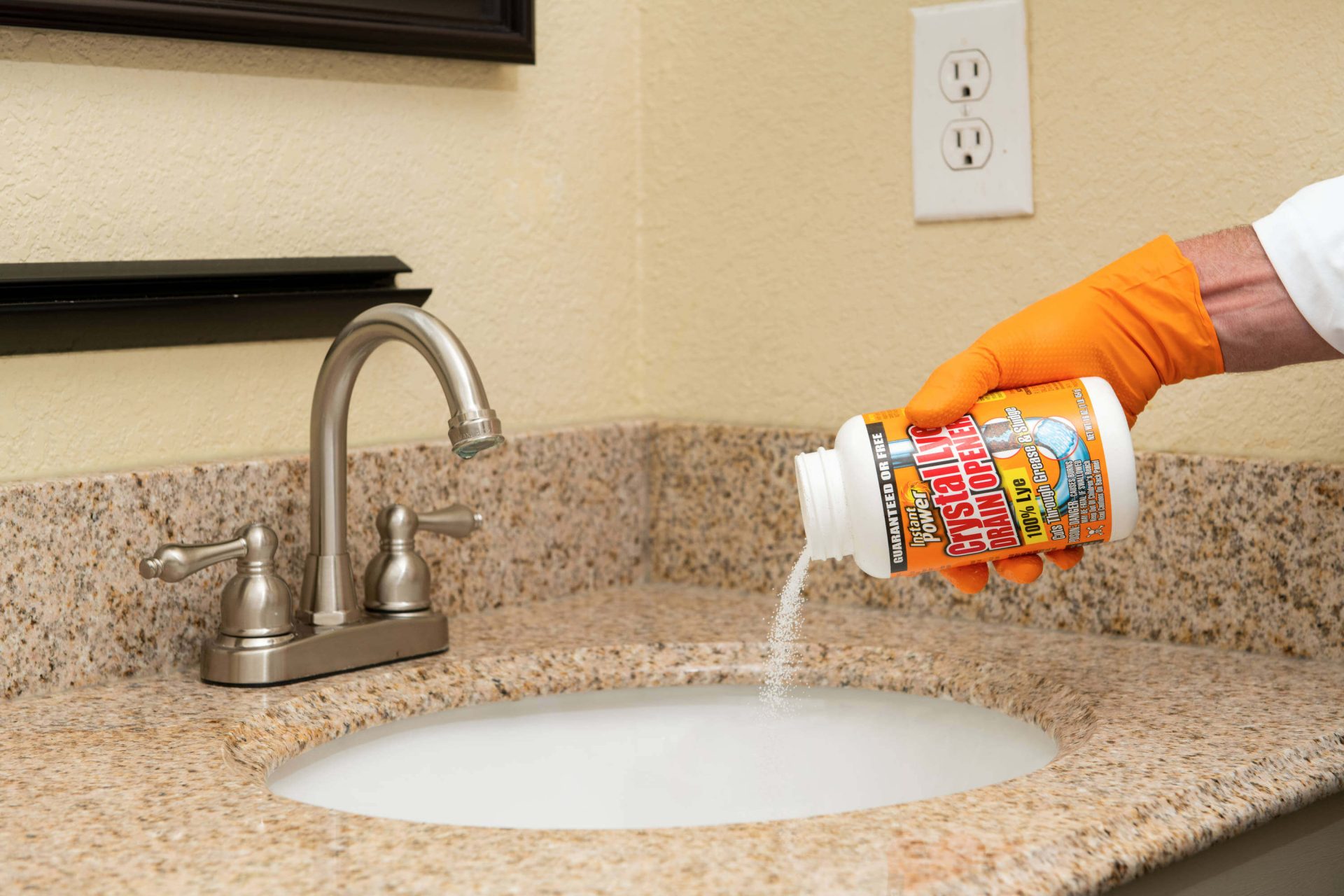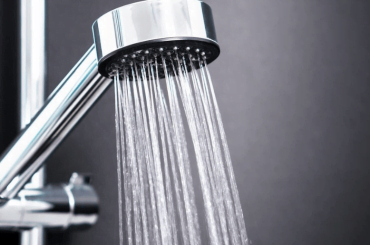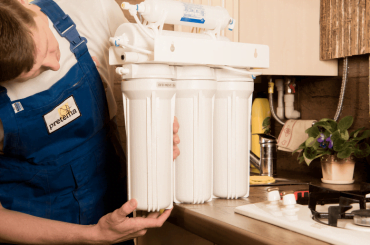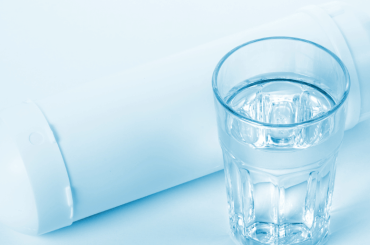Lye is a strong alkali that is commonly used in soap making. It is also effective at breaking down organic matter making it can also be used as a homemade cleaner.
But is lye safe for drains? And are there any risks associated with its use? In this blog post, we’ll take a closer look at lye and find out whether it’s a good option for cleaning drains.
We’ll also discuss some of the potential risks associated with its use and offer some tips on how to stay safe when using lye. So, if you’re wondering whether lye is safe for your drains. Keep reading!
Is lye safe for drains?
Lye is a highly caustic substance that can cause burns, blindness, and even death if not used properly. If you must use lye to clear a clogged drain be sure to take the following precautions:
- Wear gloves, goggles, and long sleeves to protect your skin from contact with the lye.
- Never mix lye with other cleaning products, as this can create dangerous chemical reactions.
- Pour the lye slowly down the drain, taking care not to splash it on yourself or anything else.
- Immediately flush the area with plenty of water to neutralize the lye and prevent it from causing further damage.
If you have any concerns about using lye to clear your drains, or if the lye comes into contact with your skin, seek medical attention immediately.
Risks associated with using lye in drains
Some of the risks associated with using lye in drains include:
- Lye can cause severe burns. If it comes into contact with your skin, it can cause serious damage.
- Lye can be poisonous if ingested. If you swallow lye, it can cause nausea, vomiting, and diarrhoea. It can also lead to more serious problems like kidney damage or failure.
- Lye can be corrosive. If it comes into contact with metal pipes, it can eat away at them and cause them to break down over time. This can lead to expensive fixes or replacements.
- Lye can produce harmful fumes. If inhaled, these fumes can irritate your lungs and cause difficulty breathing.
- If you are going to use lye in drains, it is important to take precautions to avoid these risks. Wear gloves and protective clothing when handling lye, and be sure to keep it away from children and pets.
- If you accidentally ingest lye, call poison control or go to the emergency room immediately.
Alternatives to using lye to clear a clogged drain
If you have a clogged drain there are a few different things you can try to clear it.
- Baking soda and vinegar: Mix one cup of baking soda with one cup of vinegar then pour the mixture down your drain. Let it sit for an hour then flush it with hot water.
- Boiling water: Carefully pour boiling water down your drain a little at a time.
- Plunger: Use a plunger to try and clear the blockage.
- Wire hanger: Unbend a wire hanger so that you have a long thin piece of wire. Wrap the wire around a pencil or dowel then insert it into the drain and wiggle it around to try and clear the blockage.
- Store-bought drain cleaner: There are a variety of store-bought drain cleaners available that can help to clear a clogged drain.
Be sure to follow the directions on the bottle and take precautions to avoid dangerous chemicals.
How to use lye to unclog a toilet?
If your toilet is clogged, you can use lye to unclog it. Lye is a caustic substance that will dissolve the clog. To use lye to unclog your toilet, you will need:
- 1 cup of lye.
- 1 gallon of water.
- Rubber gloves.
- Safety goggles.
To begin, pour the lye into the toilet bowl. Then, add the water and stir until the lye is completely dissolved. Next, put on rubber gloves and safety goggles.
In addition, you should always add lye to water, never the other way around. To use lye to unclog your toilet, start by pouring one cup of lye into the toilet bowl. Then, add two cups of hot water and stir the mixture well. Let the mixture sit for 30 minutes before flushing the toilet.
If your toilet is still clogged, repeat the process. If the lye comes into contact with your skin, seek medical attention immediately.
Is Lye safe for PVC pipes?
No, lye is not safe for PVC pipes. It is a strong caustic material that can damage the pipe. If you must use it, be sure to take proper safety precautions and follow the manufacturer’s instructions carefully.
Lye, also known as sodium hydroxide, is a caustic chemical that can be dangerous if not used properly.
It is often used in drain cleaners and other cleaning products because it is very effective at breaking down grease and other materials that can clog pipes.
However, lye can also damage PVC pipes if it is not used correctly.
PVC pipes are made of a type of plastic that is not very resistant to chemical damage. This means that lye can easily eat through the pipe, causing it to leak or break.
If you must use lye on PVC pipes, be sure to take proper safety precautions and follow the manufacturer’s instructions carefully. You should also avoid using too much lye, as this can increase the risk of damage.
FAQs – Is Lye safe for drains?
How do you use lye for a sink drain?
If your sink is made of metal you can use lye to clean and unclog it. Just pour some lye down the drain let it sit for a few minutes and then flush with hot water.
If your sink is made of porcelain lye can still be used but you’ll need to be careful not to damage the surface.
Use a soft cloth or sponge to apply the lye and then rinse thoroughly with hot water.
Is lye the same as Drano?
Lye is not the same as Drano. Drano is a brand name for a drain cleaner that contains sodium hydroxide while lye is the common name for sodium hydroxide.
Both are caustic meaning they can burn or destroy organic tissue on contact. However, lye is also a key ingredient in soap making while Drano is not.
Will lye dissolve rubber?
Lye can dissolve rubber but the process is not reversible. Once the rubber has been dissolved, it cannot be turned back into its original form.
Lye is a powerful alkaline substance that can cause serious burns if it comes into contact with your skin. If you’re not careful it can also damage your belongings.
If you’re planning on using lye to dissolve rubber be sure to take precautions and use it in a well-ventilated area.
What acid do plumbers use to unclog drains?
Plumbers typically use a strong acid such as hydrochloric acid to unclog drains. This type of acid can break down organic matter such as hair that is clogging the drain.
Before using any type of acid to unclog a drain be sure to read the instructions carefully. Acid is a dangerous substance that can cause serious burns.
What breaks down hair in the drain?
Hair can be broken down by several different substances including lye acid and enzymes.
Enzymes are the most gentle option and are typically used in drain cleaners. Lye and acid are more powerful options but they can damage your pipes if used incorrectly.
Conclusion
Although lye is a caustic chemical it is safe for clearing drains and pipes. Lye will not harm your drainpipes as long as you use it correctly.
When used in small amounts and diluted with water lye will break down fat and grease that are clogging your drains without harming your plumbing.





